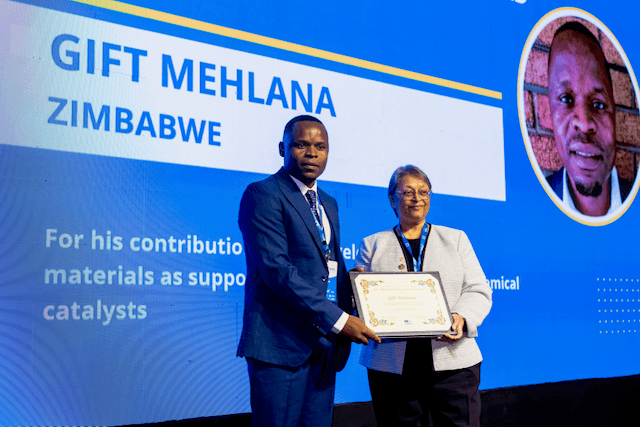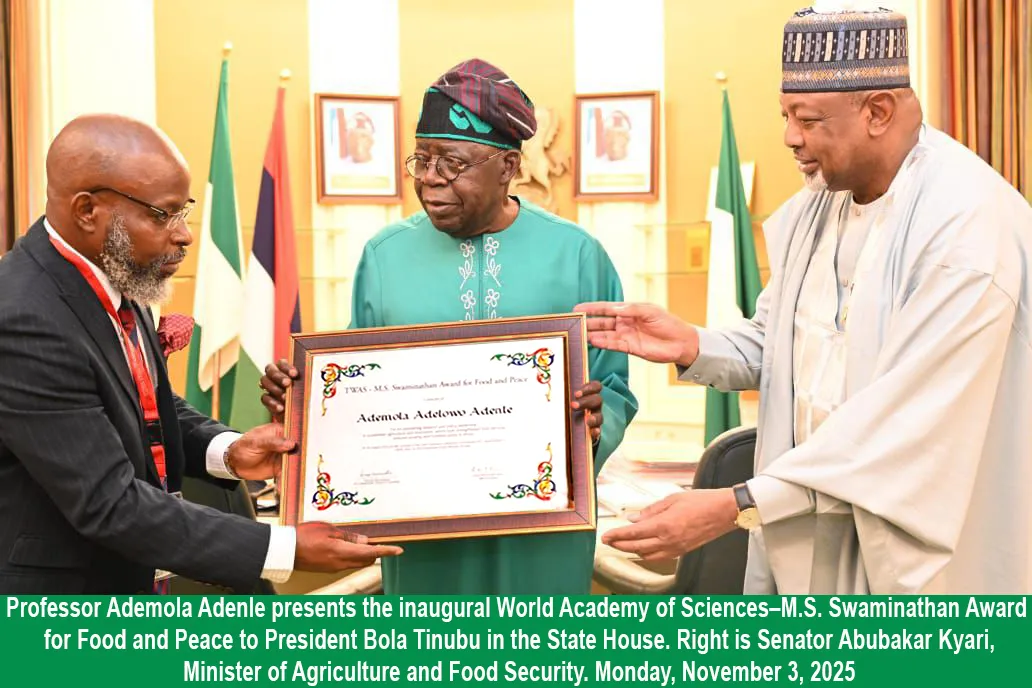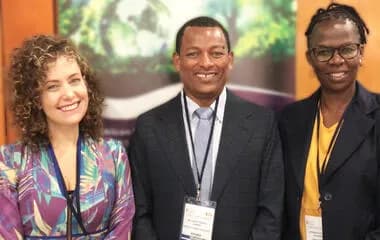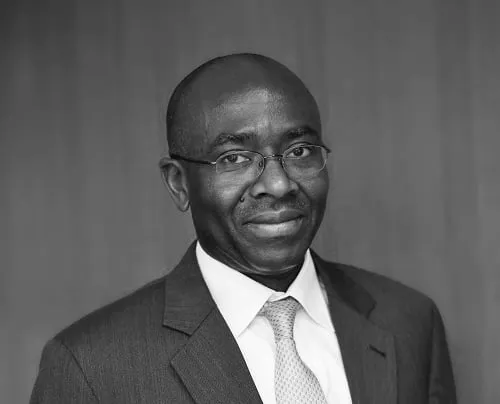News

Caption: Dr George Chimowa, closing the CVD chamber after loading a sample into the chamber for the synthesis of advanced Nanomaterials. The CVD was bought through the support of the ARISE programme funding.
The future of disease diagnosis in Africa could look very different thanks to pioneering research by Dr George Chimowa, a fellow of the African Research Initiative for Scientific Excellence (ARISE) program and a Senior Lecturer at the Botswana International University of Science and Technology (BIUST).
Dr Chimowa’s work focuses on using advanced nanotechnology to develop non-invasive diagnostic tools for diseases like Tuberculosis (TB) and lung cancer. His journey from tinkering with radios in Zimbabwe to creating cutting-edge gas sensors for medical applications is an inspiring tale of innovation, determination, and a commitment to solving Africa’s health challenges.
A Passion for Science Sparked in Makokoba
Dr Chimowa's journey into physics and nanomaterials began at an early age, growing up in the streets of Makokoba, Bulawayo, Zimbabwe. Fascinated by electronic devices like radios and walkie-talkies, he started learning about the components used to make these gadgets. By the age of 15, he was building his own small radios and even a transmitter. This early passion for electronics set him on a path that eventually led to a career in physics, with a focus on nanomaterials.
Nanotechnology, a field that deals with structures and materials at the scale of atoms and molecules, caught his attention. He realized that traditional materials like silicon and germanium were reaching their limits and new materials would be needed. This realization pushed Dr Chimowa to pursue advanced degrees in physics, focusing on the electrical properties of carbon-based nanomaterials. His interest in how nanomaterials can be used to solve real-world problems has shaped his career ever since.
Bringing Science Home to Africa
After a stint working as a broadcast engineer, Dr Chimowa decided to return to academia to focus on nanotechnology research. His work gained momentum during his postdoctoral studies, where he began exploring the potential of gas sensors to diagnose diseases through human breath. What makes this work especially important for Africa is its focus on pulmonary diseases, particularly TB, which remains one of the continent's deadliest illnesses.
"I wanted to work on something that could directly impact Africa,” says Dr Chimowa. “When I learned that TB was still one of the leading causes of death, I knew I had to focus on this.”
His research is part of the ARISE programme, which supports African researchers in tackling some of the continent’s most pressing health issues. By using nanomaterials to develop sensors that can detect volatile organic compounds (VOCs) in human breath, Dr Chimowa’s research could pave the way for rapid, cost-effective, and non-invasive diagnosis of diseases like TB and lung cancer.
The Power of Nanotechnology in Healthcare
Nanotechnology offers several advantages over traditional diagnostic methods. Gas sensors made from nanomaterials have a larger surface area, making them highly sensitive to even trace amounts of gases present in human breath. This sensitivity is crucial when it comes to detecting diseases early, which can significantly improve treatment outcomes.
Unlike traditional methods that require invasive procedures, breath analysis is non-invasive and could be performed without specialized training. This would make healthcare more accessible, particularly in rural areas where there is often a shortage of medical personnel and resources.
One of the most promising breakthroughs in Dr Chimowa’s research is the possibility of distinguishing between normal TB and drug-resistant TB through breath analysis. If proven effective through clinical trials, this could be a game-changer for countries struggling to manage the spread of drug-resistant strains of TB.
Transforming Healthcare in Africa
Dr Chimowa’s vision extends far beyond diagnosing TB. He sees nanotechnology playing a crucial role in the future of healthcare, offering new ways to detect diseases early and at a lower cost. His work has the potential to reduce Africa’s reliance on expensive imported diagnostic tools, freeing up resources for other critical health needs.
“The technology we are developing will not only be more affordable, but it will also allow for early detection, which is key in treating diseases like TB and lung cancer,” he explains.
Through his teaching and mentoring at BIUST, Dr Chimowa is also inspiring the next generation of African scientists. He believes that by embracing Africa’s rich cultural heritage and applying it to modern science, young scientists can make significant contributions to global knowledge and innovation.
A Future Driven by African Science
Looking ahead, Dr Chimowa envisions a future where breath analysis becomes a standard diagnostic tool, not just for TB and lung cancer but for other diseases as well. He dreams of establishing a Center of Excellence for breath analysis in Africa, one that would pioneer new technologies for diagnosing viral diseases and even explore applications in veterinary science and nutrition.
His ultimate goal is to ensure that African countries are prepared to face future health challenges, whether they come in the form of pandemics or the everyday burden of chronic diseases.
“We have the potential to make a real impact on global health,” Dr Chimowa says. “By training and mentoring young African scientists, we can ensure that Africa is at the forefront of scientific innovation.”
Dr Chimowa’s work is a testament to the power of science to transform lives. His research on nanomaterials and breath analysis could revolutionize how diseases are diagnosed in Africa, offering hope for early detection and better treatment outcomes.




